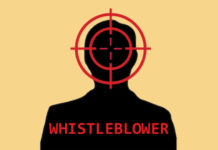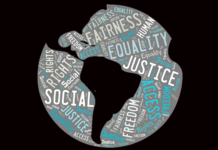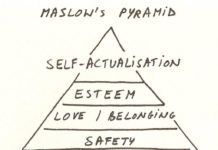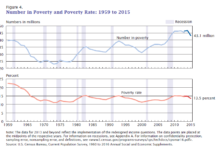Racial Discrimination a Clear Contributor to Youth Mental Health Disparities
Greater perceptions of discrimination during adolescence are linked to more depressive and internalizing symptoms.
Technology Not a Strong Factor in Adolescent Well-being, New Study Claims
A new study suggests digital media use among adolescents has a smaller negative effect on well-being than bullying or smoking marijuana.
Early Intervention Can Change the Trajectory of Foster Care Children
Study highlights the importance of early interventions for institutionalized children.
Integrating Indigenous Healing Practices and Psychotherapy for Global Mental Health
As the Global Mental Health Movement attempts to address cross-cultural mental health disparities, a new article encourages integrating traditional healing practices with psychotherapy.
Mental Health Service Users’ Perspectives on Family-Focused Recovery
Study explores a multifaceted approach to promote family-focused recovery practice.
Heroes of Science: Survival of a Whistleblower
I am just the messenger, the symbol that healthcare is in many ways absurd and harmful because the drug industry is too powerful. The Cochrane Collaboration is in deep crisis because it is too close to industry, practices scientific censorship and has a business model that focuses on “brand” and “our product” rather than getting the science right.
Are Depression Guidelines Missing the Evidence for Exercise?
A recent review suggests that depression guidelines do not incorporate evidence for exercise within a stepped-care approach and may be over-reliant on pharmacological treatments.
Global Mental Health – The Hypocrisy of Mental Health in The Age of Austerity
Dr. China Mills shares her reactions to recent events focused on Global Mental Health, elaborating on deeper issues with the framing of mental health as a “burden” and the underlying implications of coloniality, technology, and medicalization.
55 Steps to Informed Consent
55 Steps is a new film based on a true story that centers around two women: Collette, a lawyer with a tendency to work long hours, and Eleanor, who has spent far too much time incarcerated in hospitals. Over the course of five years, Collette fights for Eleanor’s right to choose whether or not she takes psychiatric drugs. This film is imperfect, but its importance can’t be ignored.
Community-Driven Healthcare for the Homeless Reduces Hospital Costs
Direct access to care in safe locations is key in reducing healthcare costs and increasing quality of life for homeless populations.
Healthy Planet/Healthy Mind with Zach Bush, MD
Business as usual — big farming, big pharma and conventional healthcare — is threatening our planet and our very ability to survive as a species. Planetary and human health are at a tipping point. Solutions informed by the science of environmental health, epigenetics and the microbiome, are elegantly simple, but their impact is profound.
What’s Blocking Progress in Behavioral Healthcare?
It's time to stop blocking progress and give peer-run organizations the same access to the funding streams used by Community Mental Health Centers. There is no reason to give more money to the people who have had all the money all along and can't solve the problems. Open up the competition, and then see what kind of amazing developments occur.
What Does Social Justice Really Mean for Psychologists?
Without clarity and consensus around what social justice means, psychologists risk perpetuating injustices that undermine their stated mission.
Did You Ever Stop Taking Antipsychotics? – World Survey on Withdrawal
Antipsychotics are big business, professionals are often at a loss as to how to help people going through disturbing experiences, the voices of patients are crowded out of the equation — there are many reasons for the lack of real education and informed consent around antipsychotics. To address this gap in knowledge, we launched a world study on antipsychotic medication withdrawal.
Challenging Resilience as a Buzzword: Toward a Contextualized Resilience Model
Researcher Dr. Silke Schwarz highlights how Western psychology’s construction of individual resilience deflects emphasized individual pathology and deflects efforts at structural change.
Hallucinations Reported as Side Effect of ADHD Medication
Hallucinations and other psychotic symptoms have been reported after methylphenidate (Ritalin) treatment for ADHD.
Research Emphasizes Association Between Inflammation, Diet, and Depression
Study finds adults with a pro-inflammatory diet have a greater incidence of depression.
Call to Monitor Adverse Effects of Antipsychotics in Youth
Researchers point to the risks of using antipsychotics with youth and caution against the practice.
Hegemonic Sanity and Suicide
The “good” suicide attempt survivor wakes up in a hospital bed bathed in beautiful natural light, surrounded by the people who love them most, and they realize that their thinking was flawed and all those unsolvable problems can actually be solved if they are just compliant with medication and therapy. And then there's the “bad” suicide attempter who is angry that they lived, who challenges the status quo.
Social Adversity and Crime Victimization Increase Risk of Psychotic Experiences Five Fold
Researchers parse out factors within urbanicity that leads to risk for psychotic experiences.
Researcher Critiques Misleading Media Coverage of Lancet Antidepressant Meta-Analysis
The BMJ’s clinical editor takes issue with uncritical media coverage of antidepressant network meta-analysis, outlining reporting missteps.
Psychologist Debunks Common Misconceptions of Maslow’s Hierarchy
Utilizing Maslow’s published books and essays, psychologist William Compton delineates common myths and attempts to respond to them.
Psychotherapy is Less Effective and Less Accessible for Those in Poverty
A special issue explores the connection between poverty, mental health, and psychotherapy.
This Is Your Personality Test Result On Capitalism
Personality tests function for an employer, intentionally or otherwise, much like diagnostic criteria function for the mental-health system: these labels determine who gets resources that capitalism itself makes scarce — not only basic necessities like food, clothing and shelter, which require money to obtain, but empathy, understanding and support, which are kept in short supply.
ISPS Australia’s Response to Schizophrenia Awareness Week: Drop the Label!
It really is time to drop the label of schizophrenia, and ISPS Australia invites us to consider just that, in favour of understanding human experience and removing the impediments to a person making sense of their experience — impediments that exist due to the primarily biomedical perspectives that continue to dominate the mental health systems.

































